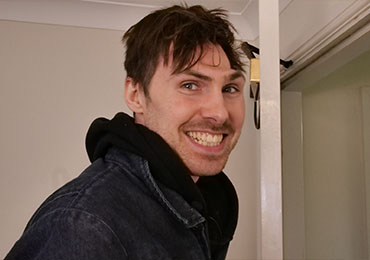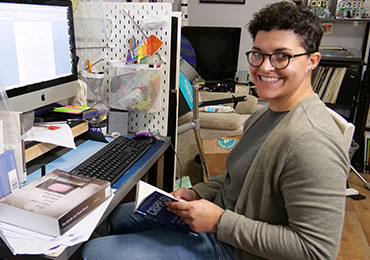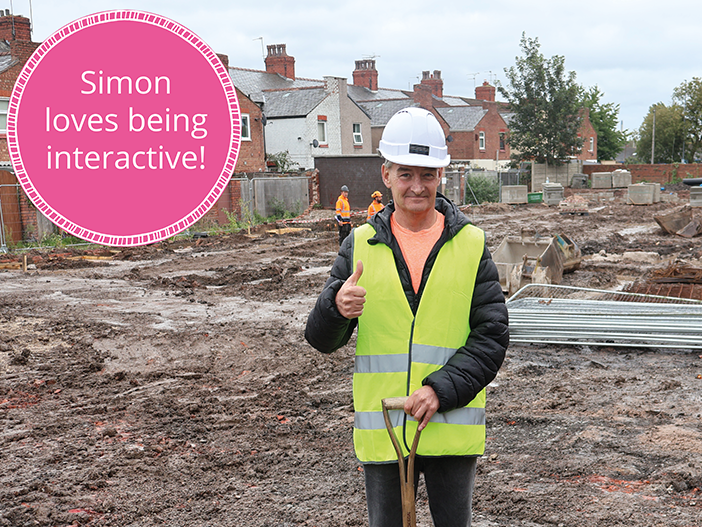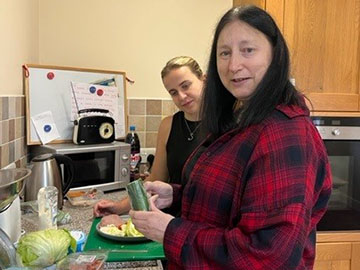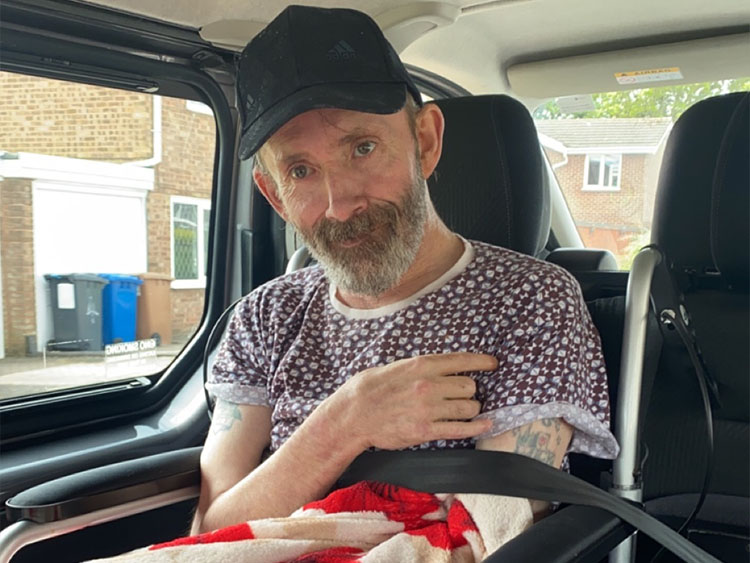Brain injury support at Cedar Road
As part of Brain Injury Week we spoke to Susan Guest, Service Manager at 48 Cedar Road. This brain injury rehabilitation residential home in Dudley supports up to nine residents. Here, we help people to develop and maintain their cognitive skills. Susan explains what brain injury rehabilitation is and the type of support Cedar Road provides.
What is a brain injury rehabilitation service?
“It’s a service that provides care and support to rehabilitate people with a brain injury to live a fulfilled life. The support we provide is based around rehabilitation techniques, which increase individuals’ independence. We use proven methods, which are a part of our training programme, to monitor progress and focus on improving cognitive and behavioural impairments.”
What kind of conditions do people with a brain injury have?
“It depends, we can have people with mental health issues as well as an acquired brain injury (ABI).
“An acquired brain injury can happen to anybody after a life changing event. This could be a car accident or related to health conditions, like a stroke. After such incidents people’s lives change forever. Usually, this affects their ability to live independently.”
How do we support people with a brain injury?
“The support we provide varies on the needs of our residents and what their personal goals are. For example, people may need therapy support, speech and language development or help with daily routines like washing and eating. We’ve got such a lot to offer at Voyage Care because we have a great team of therapists and psychology specialists that are also a part of the support package.”
Susan continues, “At 48 Cedar Road, we’ve got people ranging from no mobility at all, who literally can’t do anything, to supporting people on an outreach support package. Outreach support is where people live in their own accommodation. These individuals are more independent than residents at 48 Cedar Road. They can wash themselves, make a meal and complete their daily routine on their own. The support that they need is more focused on social and security. This could be helping them complete their weekly food shop, access local community facilities or getting into education.”
How do we train our support teams?
“Training is tailored to the needs of the people we support but also includes several advanced levels of brain injury support training. As well as five mandatory modules delivered by expert trainers, we encourage our staff to complete a brain injury related apprenticeship and other e-learning awareness courses.
“We have specialist training on a range of tools, such as Goal Attainment Scaling (GAS)
and Therapy Outcome Measures (TOM). Senior managers can also work towards
a postgraduate Continuing Professional Development (CPD) pathway.”
Susan told us more about the hands-on training, “When you join a service, you’re allocated a buddy. So, you’ll have somebody who is more experienced and has been working in the service a while. Your buddy can help you with your E-learning and answer any questions you might have. They’re there to support you every step of the way.”
It sounds like a large team is important to provide the best support at a brain injury service. What does the structure of your team look like?
“I’m the registered manager and then we’ve got a deputy manager, three senior support workers, and a number of support staff. We have eight staff on the morning shift, six on the afternoon and three support workers that work the night shift. And then we have the outreach, where they offer one-to-one support in the community in the individual’s home. Outreach support is usually for a couple of hours a day but varies on the needs of the individual. As the people we support become more independent, we change their person-centred support plan to work toward new goals or reduce the level of one-to-one support we provide.”
What have you learned about working in a brain injury service?
“These people don’t choose to have these disabilities. They would much rather be independent and in their own home. So, you have got to empathise with them and provide the best care and support so that they can lived a fulfilled life.”
Find out more about brain injury support.

 Brain injury rehab
Brain injury rehab  More success stories
More success stories 